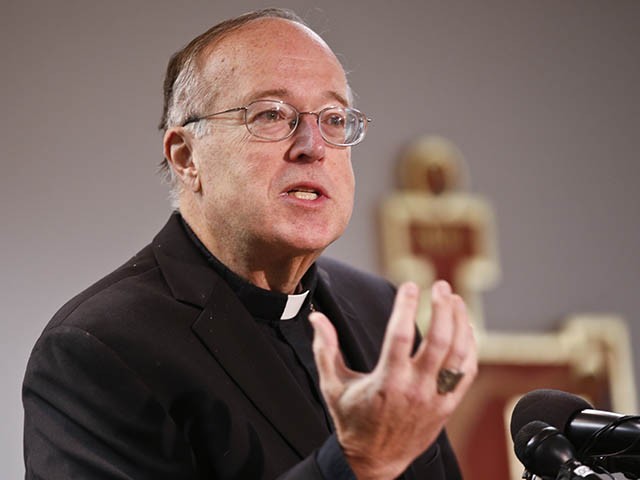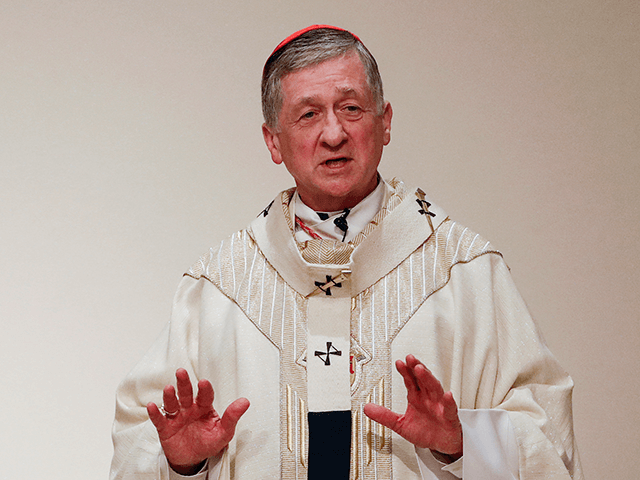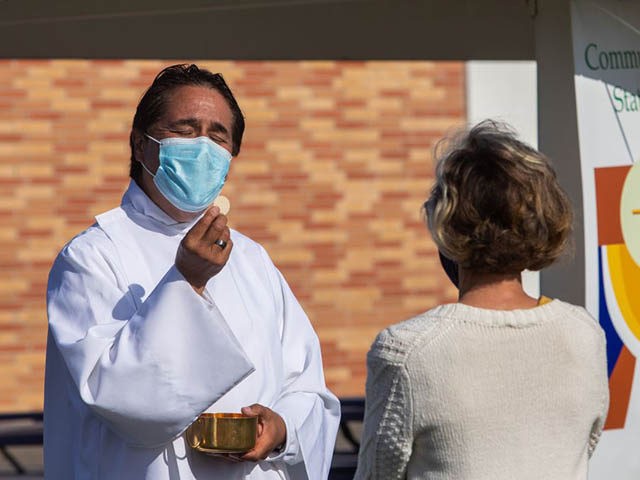ROME — The Archdiocese of Philadelphia has joined five other Catholic dioceses in rejecting exemptions to the coronavirus vaccines on religious grounds, just as other U.S. dioceses go in the opposite direction.
“In unison with the Holy See and the United States Conference of Catholic Bishops (USCCB), the Archdiocese of Philadelphia strongly recommends that all members of the Catholic community should receive the COVID-19 [Chinese coronavirus] vaccine unless a medical reason prevents them from doing so,” said Kenneth A. Gavin, chief communications officer for the Archdiocese of Philadelphia.
“That recommendation is based on the facts that the COVID-19 vaccines and their development have been determined morally acceptable and that we all share a common ethical responsibility to the well-being of our fellow human beings,” he added.
“Individuals may wish to pursue an exemption from vaccination based on their own reasons of conscience,” Gavin acknowledged. “In such cases, the burden to support such a request is not one for the local Church or its clergy to validate.”
In its decision not to validate requests for a religious exemption to the coronavirus vaccine, Philadelphia joins Los Angeles, New York, San Diego, Honolulu, and Camden.
The Archdiocese of Los Angeles issued its own statement on August 16 recommending “that all members of the Catholic community who can receive a COVID-19 vaccine should do so.”
“The Archdiocese is not providing individuals with religious exemption letters to avoid vaccination against COVID-19,” it added.
Similarly, the Archdiocese of New York released a memorandum on July 30 directing priests to refrain from issuing Catholics a religious exemption to a vaccine mandate.
The memo said that “there is no basis for a priest to issue a religious exemption to the vaccine” and that priests “should not be active participants” in assisting Catholics in obtaining a religious exemption from coronavirus vaccine mandates.
San Diego Bishop Robert McElroy went further still, insisting that Catholics who refuse the vaccine for reasons of conscience are manifesting “a rejection of the Church’s objective teaching on the morality of the Covid vaccines.”
In an August 11 letter instructing his priests to deny requests for religious exemptions to coronavirus vaccine mandates, McElroy said that the Holy See has made it clear that receiving the coronavirus vaccine is “perfectly consistent” with the Catholic faith and “indeed laudatory.”

Bishop Robert W. McElroy speaks during a news conference in which he was introduced as the Bishop of the Diocese of San Diego Tuesday, March 3, 2015, in San Diego. McElroy, has been serving as an auxiliary bishop in San Francisco since 2010. (AP Photo/Lenny Ignelzi)
The Colorado bishops, on the other hand, expressed satisfaction that the Denver vaccine mandate expressly included “accommodation for sincerely held religious beliefs,” insisting that this is “appropriate under the laws protecting freedom of religion.”
“We always remain vigilant when any bureaucracy seeks to impose uniform and sweeping requirements on a group of people in areas of personal conscience,” the bishops stated. “Throughout history, human rights violations and a loss of respect for each person’s God-given dignity often begin with government mandates that fail to respect the freedom of conscience.”
“In the case of the COVID-19 vaccine, we are convicted that the government should not impose medical interventions on an individual or group of persons,” they added. “We urge respect for each person’s convictions and personal choices.”
The bishops of South Dakota came to a similar conclusion, asserting the right of Catholics to refuse the coronavirus vaccine as a matter of “religious conscience.”
In their August 10 statement, the bishops said that if a Catholic “comes to the sure conviction in conscience that they should not receive it, we believe this is a sincere religious belief, as they are bound before God to follow their conscience.”
“We support any Catholic who has come to this conviction in seeking religious exemption from any Covid-19 requirement,” the bishops added.
“There is a general moral duty to refuse medical interventions that are in some way dependent upon cell lines derived from abortion,” they noted, adding that “such are permissible if there is a proportionally grave need, no alternatives are available, and one makes one’s objection known.”
“Even then, a well-formed conscience might decline such interventions in order to affirm with clarity the value of human life,” they stated.
Last week, the National Catholic Bioethics Center (NCBC) published a statement urging “accommodations” for people who do not wish to receive a coronavirus vaccine for reasons of conscience.
In its statement, the NCBC acknowledged “the complex and challenging decisions in conscience that institutions — including Catholic health care organizations — need to make not only for the sake of the persons they serve but also for the good of their employees.”
“Respecting the conscientious judgments and religious beliefs of these employees is an indispensable dimension of this,” it added, noting that mandatory vaccination policies need “appropriate accommodations for medical or religious reasons.”
The NCBC press release came just days after Chicago Cardinal Blase Cupich reportedly sought to pressure the Center into reversing its position on mandatory vaccinations.

Cardinal Blase J. Cupich presides over a Simbang Gabi Mass at the Old St. Mary’s Catholic Church in Chicago, Illinois, on December 20, 2018. – US bishops preparing for a meeting to address the sexual abuse scandal roiling the Catholic Church suddenly find themselves in a high-stakes credibility test following a damning report accusing them of underplaying the crisis. Illinois Attorney General Lisa Madigan on Decemeber 19, 2018, issued an explosive report accusing the states Catholic dioceses of not releasing the names of at least 500 clergy accused of sexually abusing children. (Photo by KAMIL KRZACZYNSKI / AFP) (Photo credit should read KAMIL KRZACZYNSKI/AFP via Getty Images)
The Vatican’s official position is that vaccination against the coronavirus should not be mandatory but must be “voluntary,” noting that receiving the vaccine is not a moral obligation for Catholics.
In order for a particular vaccine to be morally mandatory, a number of conditions must be met, including the irrefutable lethality of the disease, proven effectiveness of the vaccine as well as its guaranteed safety for recipients, and the absence of moral objections to the vaccine itself and its provenance.
So far, none of these conditions have been definitively met in the case of the coronavirus and the various vaccines created to defend against it. The Vatican has permitted Catholics to receive the various vaccines but has declined to designate them as morally obligatory.

COMMENTS
Please let us know if you're having issues with commenting.